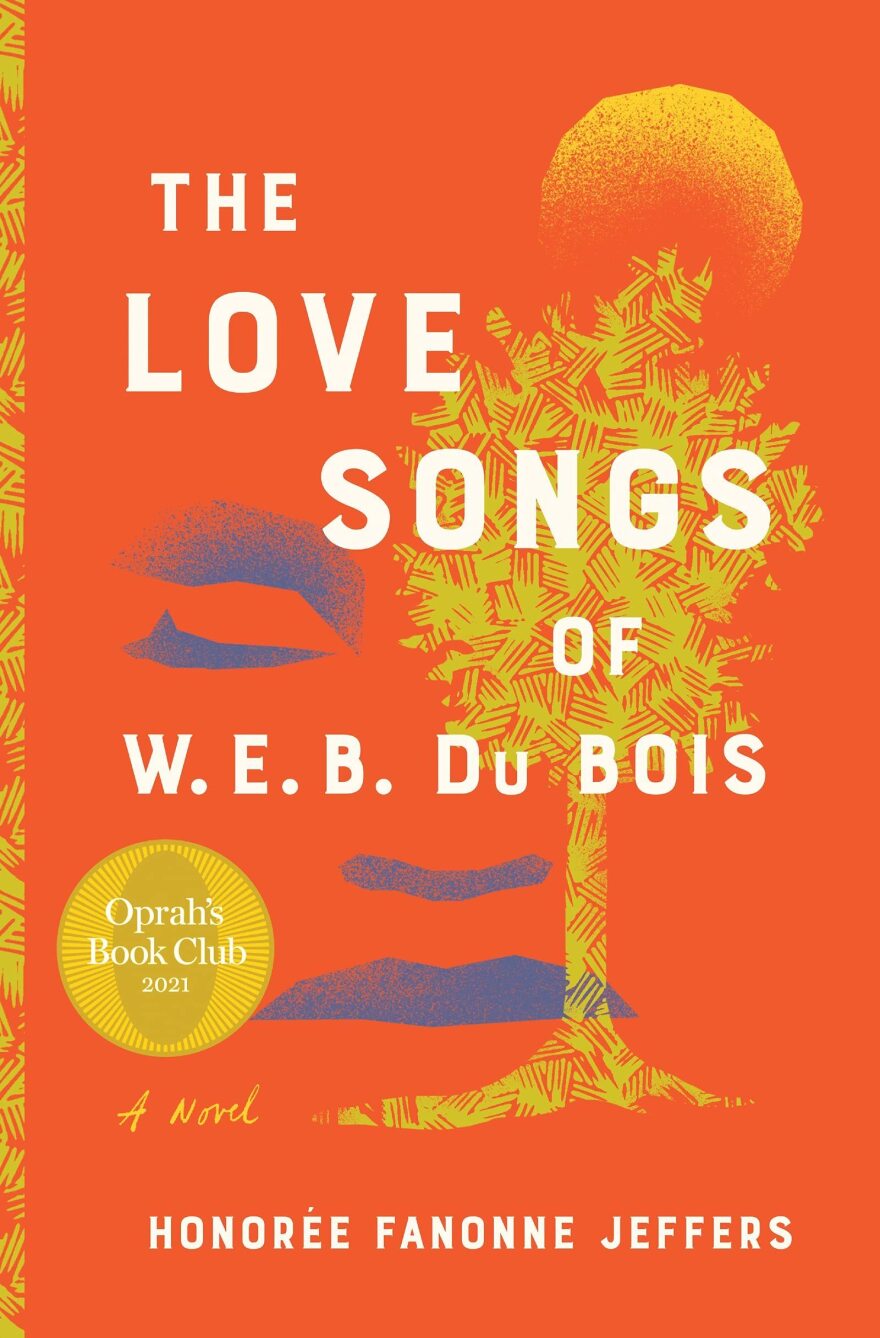The Love Songs of W.E.B. Du Bois is an immersive journey through American history. Dramatic, beautifully written, and compulsively readable, the novel brims from page to page with grand storytelling and heart.
Spanning two hundred years, it takes an intimate look at race, feminism, love, and family as told by a line of unforgettable Black women from America's South. It focuses on a fictional African American family in Georgia, beginning before the state was Georgia. Specifically, we travel to Chicasetta, a rural town that once upon a time was a plantation, and before that a Creek village.
Ailey Pearl Garfield is at the center of this sweeping saga. We meet her as a three-year-old, the youngest daughter of Mrs. Maybelle Lee Garfield and Dr. Geoffrey Louis Garfield. Ailey's sisters are Lydia, the eldest, and Carol Rose, the middle sister. The Garfields live in "the city" — that's up north, and by the way, every city in Jeffers's novel carries the same moniker. No more details or words are needed to describe "the city" — it's just the place some of Chicasetta's residents travel to, get lost in, or return from (or not).
Over the course of 30 years, Ailey and her family make the trip down south to Chicasetta every summer and most holidays to visit family. This is a multi-generational tale; Ailey is surrounded by her grandmother, a great aunt, a great uncle — Uncle Root, one of my favorite characters — and a town full of interconnected lives, histories, secrets, and lineages. These richly honed and delightfully distinct characters are part of what makes Jeffers's debut novel masterful.
'The Love Songs of W.E.B. Du Bois' takes an intimate look at race, feminism, love, and family.
And then there's Ailey. She is inquisitive, judgmental, distrusting, and filled with shame, and by the time she reaches six, she has a secret she cannot tell. But her story serves as a springboard: The author uses Ailey's coming-of-age tale to journey back and forth through decades, revealing the multiple threads that connect the descendants of an escaped slave who sought the Seminoles but instead came upon a Creek village in 1733. Eventually, Ailey's ties to her family's past lead her to unearth the truth of her ancestors, a discovery that helps her deal with adulthood, womanhood, and the tragedies, losses, and mistakes of life.
Jeffers is a noted poet and essayist — her collection The Age of Phillis, was longlisted for a National Book Award. The Love Songs of W.E.B. Du Bois is her first novel; it took her more than a decade to research and write. That poetic talent shows on the page. The author doesn't tell a linear story — instead, she expertly navigates from decade to decade, often using Ailey's life events as a catalyst to explore another character's crisis a hundred years in the past or ten years in the future. This movement through time is smoothly executed. We don't lose track of who or what or why. We are so connected to these characters; we can almost anticipate the next reveal as Jeffers navigates the familiar in Black culture while also digging into what's mysterious and past. Which is not to say that the novel is predictable — on the contrary, only those events cemented in history can be anticipated.
'Love Songs' is immersed in Black feminism, but also explores the turn-of-the-20th-century philosophies that helped shape the Civil Rights movement.
I particularly enjoyed the deep dive into 40 years of African Americans' college and university experience as we follow Ailey and her family — from pledging and hazing to homesickness and falling in love for the first time, and the falsehoods of love that can strengthen or destroy.
Love Songs is immersed in Black feminism, but also explores the turn-of-the-20th-century philosophies that helped shape the Civil Rights movement. For example, an ongoing debate between two characters — David James and Uncle Root — about W.E.B. Du Bois and Booker T. Washington — zeroes in on what made these two vastly different men so divisive and so vital to the Black community. One of the discussions becomes quite heated:
Uncle Root opened his eyes.
"Can you imagine that? Here Booker T. Washington had the opportunity to change the hearts and minds of these vicious white southerners. He could have truly helped our people that day, and those despicable words are what he chose to deliver!"
The length might seem daunting — 800 pages — but the novel's structure will pull you deeper and deeper into the D.N.A. of these Black characters. By shifting through the centuries seamlessly, Jeffers magnifies the consequences of their choices.
And the words of William Edward Burghardt Du Bois himself, interspersed between chapters, are a bridge that continuously and beautifully makes The Love Songs of W.E.B. Du Bois a remarkable reading experience.
Denny S. Bryce is the author of the historical novel Wild Women and the Blues.
Copyright 2021 NPR. To see more, visit https://www.npr.org.



